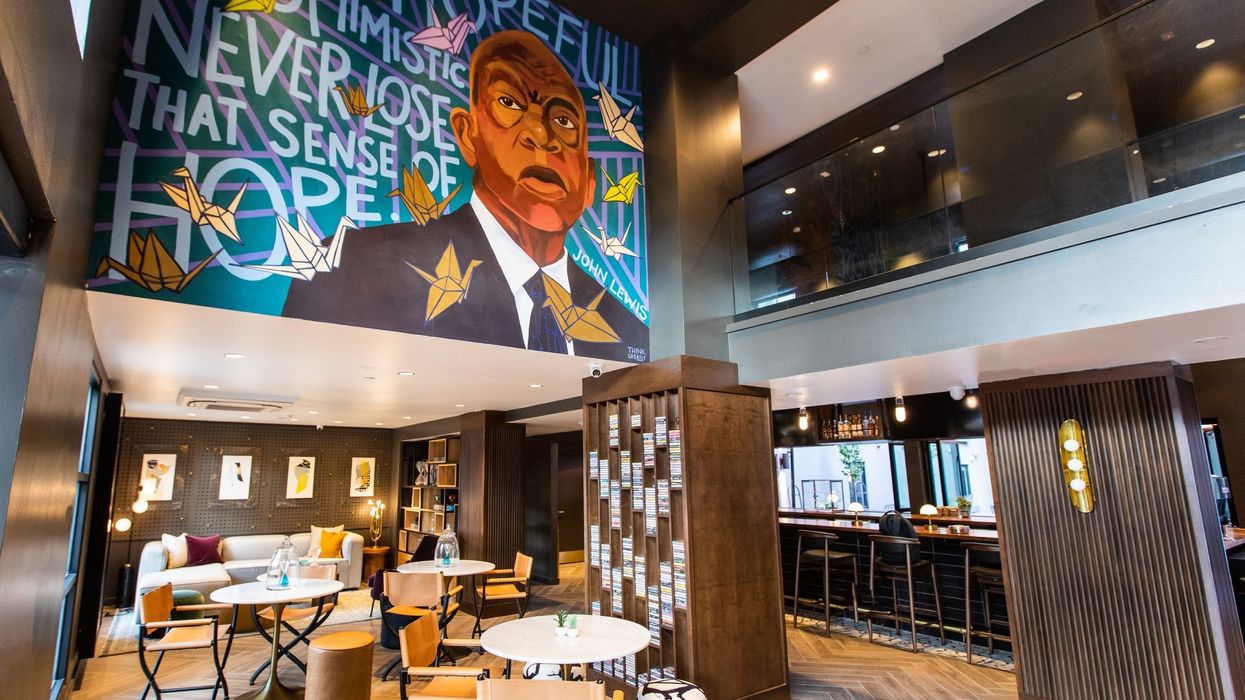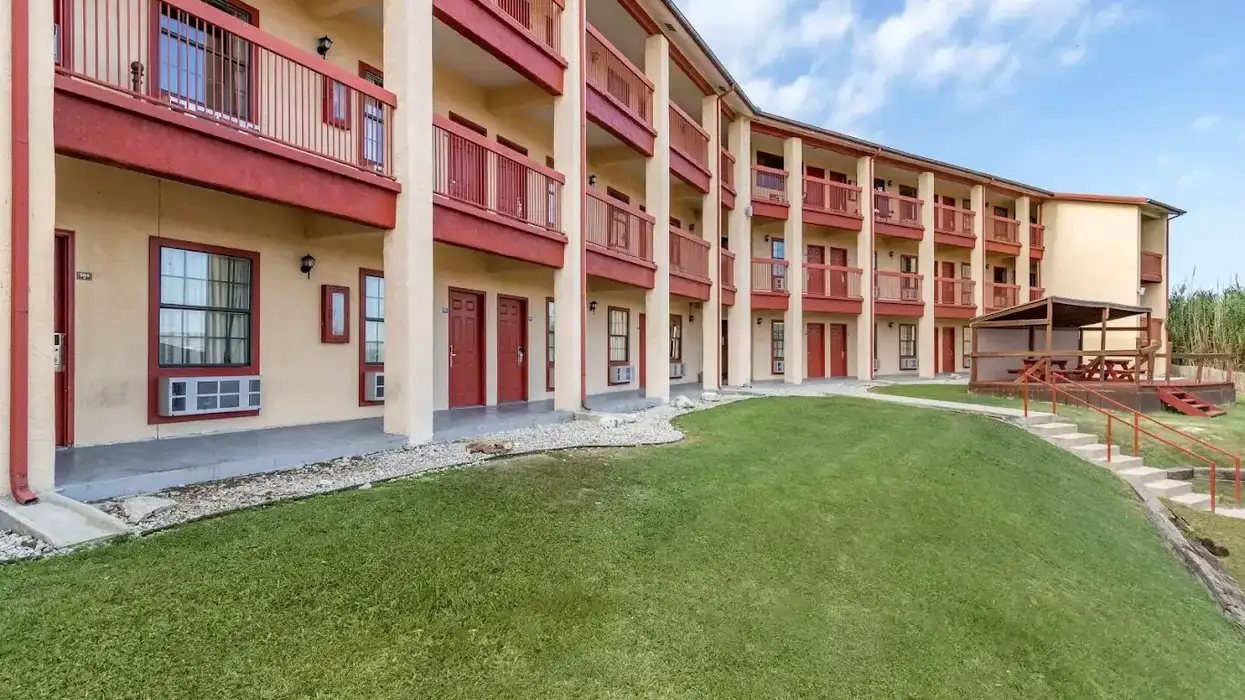GEORGIA HOTELIER NAVIN Patel has contracted with Hospitality Ventures Management Group to manage his 111-room boutique Darwin Hotel in Atlanta. HVMG oversaw the complete rebranding and renovation of the hotel.
The four-story Darwin is in Atlanta’s Old Fourth Ward and features eight individually themed suites and a lobby that displays a collection of local art. It is named after evolutionary biologist Charles Darwin and the themes include the Bar Room, featuring a full bar for entertaining; the Bunk Bed Room, with bunk beds and extra space for families and young adults; and the Audiophile Room, which includes a turntable and access to the hotel’s vinyl music library.
Navin Patel and his two sons, Shyam and Sagar, purchased the property in 2016.
“We hope to showcase the best of what Atlanta has to offer,” Navin Patel said. “This hotel is a love letter to our ever-changing city and pays homage to its history. Being in the heart of a large metropolitan city creates opportunities for artists, businesspeople, world travelers and people from all walks of life to all unite in our space.”
The family owns two other hotels in Albany, Georgia, as well as a staffing and recruitment company.
The pet-friendly hotel also is the only hotel in Atlanta with a dog park. It has a rotating pop-up chef program to constantly update its menu and also houses several murals painted by local artists. Local artisan wares are sold in its giftshop.
Additional hotel amenities include bike racks and two electric bicycles for rent, a fitness room and a conference room able to accommodate up to eight people. It is near Ponce City Market shopping center, Illuminarium Atlanta, the Historic Fourth Ward Splash Pad, the Jimmy Carter Presidential Library and Museum and the Atlanta Beltline Eastside trail.
“The Darwin Hotel is a perfect complement to our growing number of independent, third-party operated hotels,” said Robert Cole, Atlanta-based HVMG president and CEO. “From the Borrego Springs Resort & Spa in California to the Plunge Beach Resort in Florida, HVMG has developed a team that understands and appreciates the differentiators that make an independent hotel stand out from the pack of other, branded lodging options. With the hotel’s renovation and rebranding complete, we look forward to introducing this unique product to the Atlanta marketplace."
In October, Sameer Nair became HVMG’s senior vice president of acquisitions and development.






